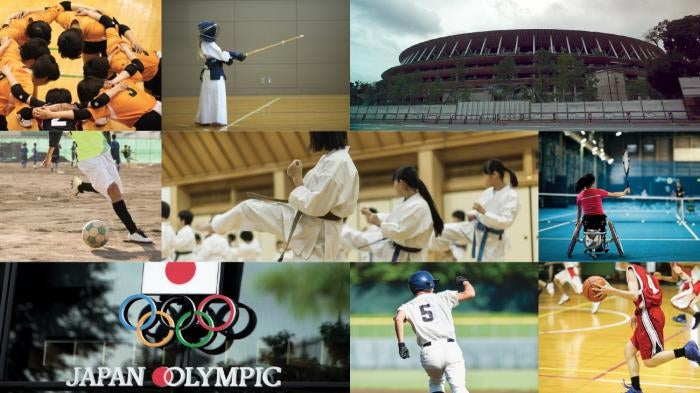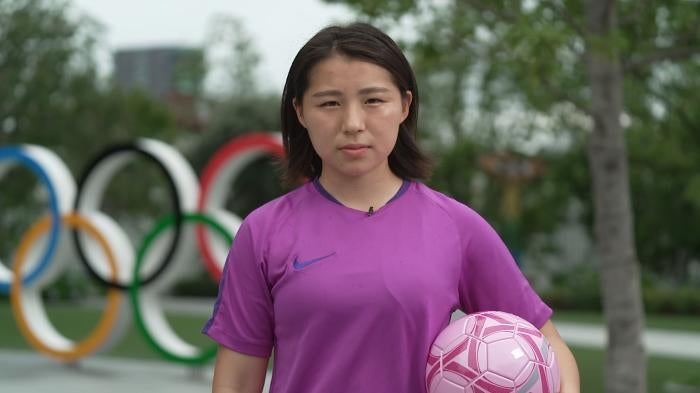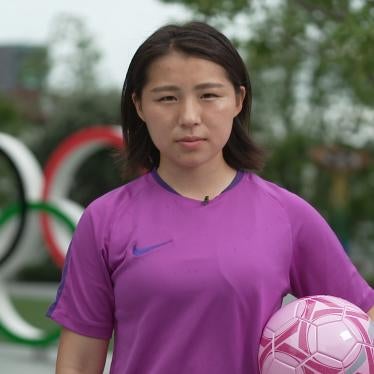摘要
我被打過數不清多少次。⋯教練把全隊集合起來,在大家面前朝我臉上打。我被打到流血,他還不停打我。我跟他說我的鼻子流血了,但他就是不停下來。
— 大輝 A.,23歲,福岡,2020年2月
參加體育活動應該讓兒童享受到遊戲的愉悅,並且有益身心發展和成長。但在日本,未成年運動選手卻經常遭受暴力與虐待。對太多日本兒童而言,體育反而成為痛苦、恐懼和壓力的源頭。
體罰作為訓練方法,是日本體育界的傳統,普遍被認為是提升競賽成績和品格的必要途徑。這種不良傳統導致在體育界消滅體罰非常困難。教練、父母甚至部分選手本身都堅持體罰有其必要的錯誤觀念──兒童則成為受害者。
有些體育項目,特別是拳擊、武裝及其他接觸性運動,必然涉及參與者之間的肢體暴力。儘管這些體育項目也有運動員安全的疑慮,但本報告並不討論運動場上正常競爭而造成的傷害。在本報告中,所謂體育暴力或虐待專指與正常訓練或競賽全然無關的行為,例如教練為懲罰而毆打選手臉部,即本節開頭所引述的情況。
本報告記錄的教練暴力行動包括但不限於:用球棒和竹劍毆打兒童、搧兒童耳光以及把兒童頭部壓進水中有如溺水。雖然對兒童的虐待包含各種傷害,例如肢體和性的暴力、言語虐待和遺棄,本報告主要討論肢體暴力,因為這是人權觀察所訪問的現退役兒童運動員最常提到的經驗。言語的和性的受虐經驗也列入紀錄。
必須有明確且全面性的改革,才能消滅體罰、保護兒童。雖然日本禁止虐待兒童,但法律沒有明文規定將禁令延伸至體育活動。日本政府和各體育組織近年已在努力解決兒童體罰問題,但各體育組織適用的保護兒童指導原則至今仍屬不具拘束力的建議性質,而且沒有明確的申訴機制。
人權觀察的研究──包括訪談所有競爭水平的逾50位現退役兒童運動員,線上意見調查,向各種體育組織申請提供資料,以及測試現有的舉報機制──發現日本兒童從事體育活動仍可能遭受虐待,並且指出阻滯政府應對與防控虐待事件的制度缺陷。
2012年曾有一起知名案例,大阪一名17歲高中籃球隊員因遭受教練不斷虐待而自殺。數月後,日本奧運女子柔道隊總教練因被控肢體虐待運動員而在2012倫敦奧運前夕自請辭職。
由於這些案件的餘波,以及東京申辦和籌備2020年奧運會暨帕運會的壓力,日本政府和各大體育協會推行了一系列改革。最值得注意的是2013年《消除運動暴力宣言》(敦促各體育組織追查運動員受虐並建立被害人舉報制度的書面聲明),以及2019年全國體育聯合會和其他體育組織的內部管理規則(旨在建立各體育機構通用的指導原則)。然而,這些改革都沒有充分或專門解決虐待兒童的問題,也沒有法律拘束力,令人懷疑其既有成效和未來效力。
兒童虐待在日本是違法的,而且日本今年剛剛立法全面禁止體罰,這是公民社會團體數十年努力的成果。這項禁令也適用於體育活動。為了進一步明確化,日本政府應該明文規定,法律上對虐待兒童與體罰的禁止範圍涵蓋體育組織。雖然已有數部法律可以明確認定如此的暴力和虐待為非法(《體育基本法》、《兒童虐待防止法》和《教育基本法》),但現行法律都沒有特別提到體育活動中的兒童虐待。
兒童虐待,包括體育中的兒童虐待,亟待以刑事法予以課責和救濟。但體育組織也負有首要責任,應解決虐待問題,保護未成年運動員。如果主要體育機構如日本體育廳、日本體育協會和日本奧林匹克委員會不能制定明確而全面的兒童保護規則,就只能仰賴各項運動協會自行對虐待兒童運動員的行為建立預防、舉報、調查和懲戒的制度。而這種各自為政的情況,產生了既不一致也不足夠的兒童運動員保護機制。
人權觀察對日本各大體育組織進行了評估,我們發現可以用來舉報虐待的制度結構在形態上存在很大差異,有些組織完全沒有這種制度,有些則只接受信件或傳真舉報。沒有公開可得數據能夠說明有多少經舉報的虐待案件得到調查,而人權觀察向各體育組織索取的資料則顯示許多組織並未紀錄相關資料。當教練被發現虐待未成年運動員,各項運動之間並不存在統一的裁罰標準。許多涉嫌虐待甚至導致運動員自殺的教練,迄今仍持續任教。
這些制度失靈致使兒童運動員很容易遭受虐待。在人權觀察在2020年3月到6月進行的網上問卷調查中,有425名現退役兒童運動員表示曾在參加體育活動時親身經歷肢體虐待;其中175名24歲以下的受訪者近期或持續遭受虐待,我們因此得以就現行做法及其後果進行評估。在我們回收的問卷中,共有來自45個縣級行政區、至少50項不同運動項目的現役或退役兒童運動員談到他們遭受虐待的情況。
通過訪談,人權觀察得以詳細記錄這些經驗的性質及其負面影響。例如,琦玉縣前中學棒球隊員,現年23歲的翔太(化名),談到被教練虐待的經驗:「他出拳打我下巴,把我打得滿口鮮血。然後又抓住衣領把我拎起來。」這在翔太的球隊有如家常便飯:「百分之90的隊友都曾被體罰。⋯⋯我們常互相開玩笑說,『你今天還沒被揍,什麼時候輪到你?』」
接受人權觀察訪問的運動員談到,教練打人不會被追究責任是既成文化。在最近曾受虐待的兒童運動員受訪者中,除了一位以外,都說教練沒有受到任何處分。
根據國際法,各國政府有義務確保兒童從事體育活動的權利,以及兒童不受暴力或虐待的權利。為了終結日本兒童運動員受虐,國家必須採取一致措施,以明確的權責和準則為依歸。作為起步,政府應當明確禁止以任何形式的虐待作為體育教練技巧,並設立日本安全體育中心,以獨立機構地位專責處理體育活動中的兒童虐待。此一機構應負責制定和維護兒童運動員的保護準則,並應作為調查虐待案件的中央行政當局,對施暴的教練作出相稱處分。涉及犯罪行為的虐待案件應即時移送檢警機關偵辦。
隨著東京奧運會暨帕運會延至2021年夏季,日本在賽會開幕前有一整年時間可以採取果決行動。這是日本的難得機會,可以向世人展現對兒童運動員福祉的關注,率先為人人都能安全參與體育活動樹立標竿。藉此,日本將躍居聯合國終止暴力全球伙伴的領頭羊,充分發揚其對終結暴力對待兒童的承諾。採取保護兒童運動員的果決行動,可讓日本兒童感到他們的健康和福祉深受重視,讓施虐的教練警覺自己的行為將不再受到容忍,並為其他國家終結體育界兒童虐待問題樹立楷模。
主要建議
對日本國會:
- 修正《體育基本法》或制定新法,明文規定:
- 禁止體育組織中教練對兒童運動員一切形式的虐待;
- 明確運動員的權利,包括參與體育活動不受虐待的權利;
- 所有兒童體育教練必須接受培訓;以及
- 任何成年人得知兒童運動員遭受虐待時必須予以舉報。
- 修正《兒童虐待防止法》,擴大第2條有關兒童虐待定義的適用範圍,明文納入體育組織中的兒童虐待。
- 設立日本安全體育中心,以獨立機構地位專責處理日本體育界兒童虐待問題。在各種體育組織之間,此一獨立機構將作為日本體育界處理所有兒童運動員受虐案件的中央行政當局。
- 制定有關兒童運動員受虐的預防和保護準則,確保該準則得到日本各大體育組織充分遵守;
- 直接受理兒童運動員受虐案件的申訴或舉報,以及通過中央舉報系統匯整所有現行舉報機制所獲資料;
- 對所有體育組織中的兒童運動員受虐案件進行調查,對涉案教練給予相稱處分——例如註銷教練執照、暫停或取消教練資格——並為受處分教練提供申訴管道;
- 於適當時將虐待案件移交執法機關進行刑事偵辦;
- 記錄並發佈舉報案件數量及調查結果相關數據;
- 建立受處分教練公開登錄制度;
- 確保受虐兒童運動員獲得免費、持續性的專業心理諮詢;
- 為所有兒童體育教練制定訓練準則;以及
- 實施有關此一獨立機構功能與運作的教育宣導活動。
- 制定有關兒童運動員受虐的預防和保護準則,確保該準則得到日本各大體育組織充分遵守;
- 為日本安全體育中心提供必要經費,維持足以執行前述各項工作的人力與資源。
對日本體育廳:
- 制定新指針,明確下列事項:
- 禁止體育組織教練對兒童運動員的一切形式虐待;
- 明確運動員應享的各項權利,包括參與體育活動不受虐待的權利;
- 要求所有兒童體育教練接受培訓;以及
- 要求所有成年人得知兒童運動員受虐時必須加以舉報。
- 禁止體育組織教練對兒童運動員的一切形式虐待;
- 修正2019年體育管理規則,明定所有全國性體育聯合會及正規體育組織必須遵守該規則。修正後的規則應納入有關兒童運動員受虐之舉報、調查和紀律處分措施的明確準則,確保全國各地、各種體育項目對施虐教練給予一致處罰。修正後的規則也應強制要求所有成年人,當得知兒童運動員受虐時須向有關當局舉報,包括向執法機關檢舉相關犯罪行為。
對文部科學省:
- 在第3期體育基本計劃(2022至2026年)中,加強並重視保護兒童運動員免於虐待,並應明確說明達成此一目標的具體措施。
- 修訂文部科學省對校園虐待問題的年度調查,提供校園體育虐待事件相關數據。
- 要求所有校園體育教練參加兒童保護培訓及認證。
對日本體育協會、日本奧林匹克委員會和日本障礙者體育協會:
- 要求所有會員組織體育教練參加兒童保護培訓及認證。


